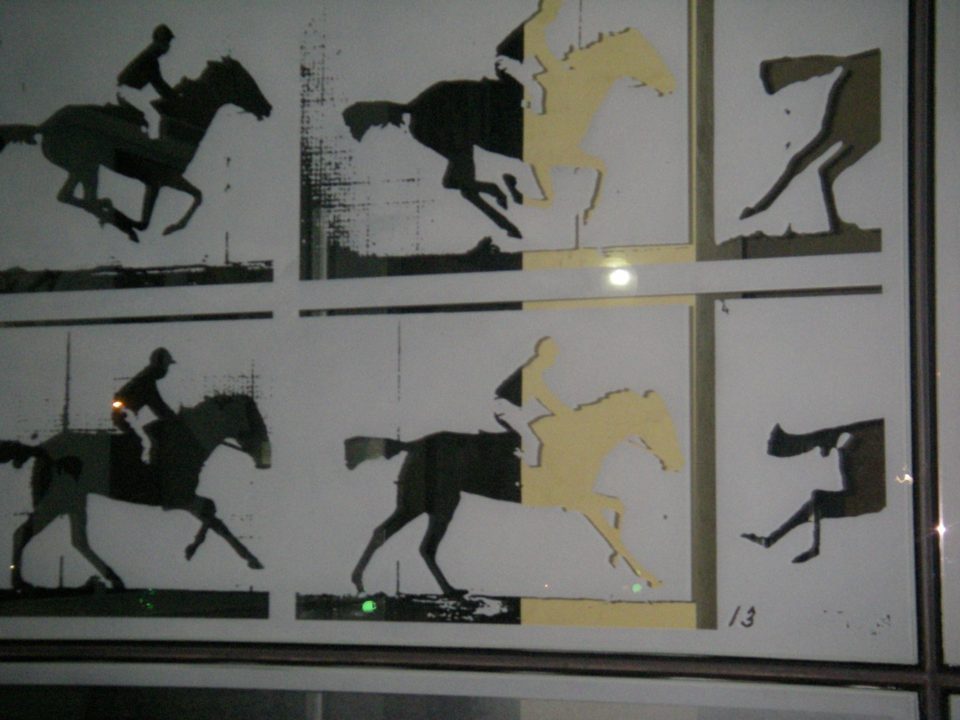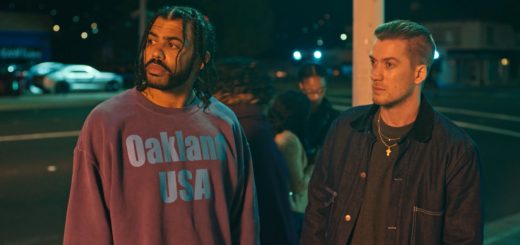OLD HENRY @ Nashville Film Fest 2021

One of the last things I expected to see at the toney, artsy-fartsy Nashville Film Festival was a Western. Maybe I was misdirected in my thinking: American cinema has pointed west since 1903, when Justus Barnes pointed his six-gun at the audience in The Great Train Robbery (a moment of film so important that Father Scorcese included it in his sermons). Cinematic persona than Robert Duvall has said, many times, that the English have Shakespeare, the French have Moliere, and we have Westerns—they’re our foundational stories.
Another reason to expect Westerns at film festivals is that they just might be as incredible as Old Henry, a film that, should it find major release, ought to take its place in the film canon alongside anything John Ford ever created.
Directed by Nashville native Potsy Ponciroli (and as such, largely filmed in Tennessee), Old Henry tells the story of the titular Henry (Tim Blake Nelson), a flinty, stoic farmer in the Oklahoma Territory circa 1906. Henry is adamantly set in his ways—all of them—and this creates tension between himself and his only child, his son Wyatt (Gavin Lewis), who lives with him on their farm in the middle of nowhere, and can’t wait to get out.
Henry refuses to give Wyatt the money with which to travel, and won’t give him much else that would serve him beyond the farm, We learn that he’s never even taught Wyatt to fire a gun, despite Henry’s unusual skill with one.
So far, we have a taciturn father and an escapist son; if Ponciroli stopped here, we wouldn’t have much of a film. He doesn’t stop there. Instead, a riderless (but saddled) horse appears at the farm one morning, and there appears to be fresh blood on the saddle. Henry investigates— insisting that Wyatt stay home—and that’s when he discovers both the former rider, barely alive after a gunshot wound to the chest and a leather satchel full of cash.
At about the same moment that the viewer realizes (1) that this cash could fund Wyatt’s traveling (2) that this is reminiscent of No Country For Old Men, Henry delivers a firm “Nnnnnope!” and leaves the money on the ground—a “nnnnnope” which he just as firmly rescinds a moment later, when he decides to keep the cash, take the injured man back to the farm to treat him and do all he can to “clean” the site of any trace that the injured man has been there. It’s obvious he wants to throw the man’s pursuers off the trail. What isn’t obvious is why.
We soon understand that the pursuers are a group of men led by Ketchum (Stephen Dorff), an oily, raspy-voiced menace who identifies himself as a sheriff from another county. He told Henry that the wounded man (Scott Haze) is a fugitive, having robbed a bank—hence the satchel of cash.
Henry believes he has successfully hidden the cash from Wyatt, and that Wyatt will be safe with the injured (and tied to a bed) man while he ventures out again to see if he can find the pursuers in question. He’s wrong; Wyatt is neither safe (the injured man frees himself courtesy of a daft error on Wyatt’s part) nor unaware of the money, having surreptitiously watched as Henry hid it. Once Henry is gone, Wyatt finds the cash, plus several other items Henry has hidden from his son—firearms various, and yellowed newspaper clippings, upon which we can read one name: Garrett. If you know your Western history (and your Western movies), you know that name. If you’re Wyatt, these discoveries lead you to wonder (when you aren’t, you know, fighting for your life against a newly-conscious injured man) who your father really is, and always has been.
He even asks Henry, upon his return, “Who are you?”and Henry’s reply, taciturn as usual but slightly angry, is “I’m who I am” (or, as Nelson delivers the line, Ah’m who Ah ayum). It’s the most Henry ever says about the subject, but the other characters in the film, Wyatt included, do indeed finally learn who Old Henry is, as does the audience, in a jarringly delightful twist. Henry’s is not the only identity clarified, either, as we finally become aware of who the true villain is, Ketchum or the wounded man—and even that clarity is not set in stone.
The film’s resolution is satisfying but at the same time emotionally draining; that emotional drain, however, is worth recovering from quickly so as to process what one has just seen. It’s a Western, sure, with loads of gunfights and knife fights and big, sweeping scenery (lovingly handled by cinematographer John Matysiak), but it’s also a hell of a reflection on identity and destiny, and how much each thing may (or may not) hold us in place—and whether those things still hold us in place as the world changes.
“The world is changing,” Henry says to Wyatt shortly before the film ends, and that’s worth noting. This is a Western set in 1906—there are still cowboys and six-shooters, but Einstein has discovered relativity and The Great Train Robbery had been released three years earlier. Maybe Ponciroli is telling us, via Westerns, who gave us a world capable of changing.






















